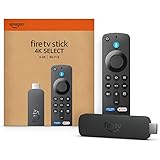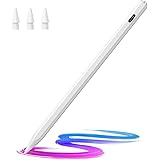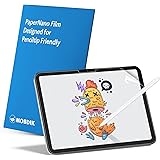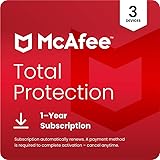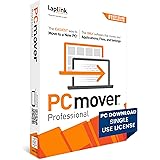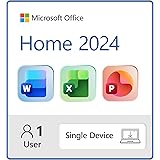Did you know that nearly 40% of Americans don’t pay off their credit card balances in full each month? This can lead to a lot of debt. It also hurts your financial health.
It’s important to make timely credit card payments. This keeps your credit scores high and avoids financial trouble. By paying more than the minimum, watching your balance, and checking your statement, you can handle your credit card debt well.
Using a credit card responsibly helps build good credit. Good credit is key to reaching your financial goals, like buying a house or a car.
Key Takeaways
- Make timely payments to avoid late fees and penalties.
- Pay more than the minimum payment to reduce debt.
- Monitor your balance regularly to stay on top of your finances.
- Avoid interest by paying off your balance in full each month.
- Review your statement to detect any errors or unauthorized transactions.
Understanding the Basics of Credit Card Payments
Learning about credit card payments is key. Paying on time helps keep your credit score high and avoids extra fees.
How Credit Card Billing Cycles Work
Credit card cycles last from 28 to 31 days. During this time, all your purchases add up. Then, you get a statement with your total balance.
Knowing your cycle is crucial. It’s vital to know when your cycle starts and ends to plan your payments well.

The Importance of Payment Due Dates
Payment due dates are critical. They’re when you must pay your bill to avoid late fees. Missing this date hurts your credit score.
Setting reminders or automating your payments helps avoid missing due dates. This keeps your payments on track.
Why Making Payments on Time Is Critical
Making on-time credit card payments is very important. It helps keep your finances in good shape. Paying on time avoids extra fees and helps your credit score.

Late payments can hurt you in many ways. Knowing this makes paying on time even more important.
Impact of Late Payments on Your Credit Score
Late payments can really hurt your credit score. Payment history is a big part of your score. Always paying on time is key to a good score.
Avoiding Late Payment Fees and Penalties
Late payments also mean extra fees. These fees can add up fast, making your debt cost more. Paying on time avoids these extra costs.
Setting Up Payment Reminders
To never miss a payment, set up reminders. Many credit card companies send reminders by email or text. You can also use apps or calendar alerts. Automatic payments ensure you never miss a payment.
By focusing on timely payments and using reminders, you keep your finances healthy. This way, you avoid the problems of late payments.
The Danger of Paying Only the Minimum Amount
Paying only the minimum on your credit card can harm your finances. It makes your debt last longer and adds more interest.
Understanding the Impact
Just paying the minimum can extend your debt time. It’s key to know how this affects your debt.
How Minimum Payments Extend Your Debt Timeline
Only paying the minimum stretches out your debt repayment. For example, a $2,000 balance with an 18% interest rate and a $50 minimum payment could take over 5 years. You’ll pay thousands in interest.
The True Cost of Minimum Payments Over Time
The cost of only paying the minimum is high. In the example above, you could end up paying almost double the original amount due to interest.
Calculating Your Payoff Timeline
To avoid minimum payment issues, figure out your payoff timeline. Divide your total balance by your monthly payment. Use a credit card payoff calculator to see your repayment schedule.
Paying more than the minimum can cut down your debt time and interest. Plan to pay more than the minimum to manage your credit card debt.
- Review your budget to allocate extra funds towards your credit card payment.
- Consider setting up automatic payments to ensure you never miss a payment.
- Use any windfalls, such as tax refunds or bonuses, towards your credit card debt.
Being proactive and paying more than the minimum can help you pay off your credit card balance. This improves your financial health.
Strategies to Pay More Than the Minimum
To pay off your credit card balance quickly, try more than just the minimum payment. Paying only the minimum can make it take longer to pay off and cost more in interest.
There are ways to pay more than the minimum. First, setting a fixed payment amount each month helps you pay more consistently.
Setting Up a Fixed Payment Amount
Choosing a fixed amount to pay each month ensures you pay more than the minimum. This amount should fit your budget and financial situation.
Using Windfalls and Bonuses Effectively
Using unexpected money, like tax refunds or bonuses, on your credit card debt can cut down your balance. Try to put some or all of this money towards your credit card payment.
Creating a Dedicated Credit Card Payment Fund
Having a special fund for credit card payments can keep you on track to pay more. Set aside a part of your income each month into this fund.
With these strategies, you can pay off your credit card debt faster and save on interest.
How to Monitor Your Credit Card Balance Effectively
Keeping an eye on your credit card balance is crucial for smart money management. It helps you avoid overspending and debt. Regular checks keep you informed about your finances.
There are smart ways to track your balance. Mobile apps and alerts give you instant updates. This way, you’re always in the loop.
Using Mobile Apps and Alerts
Many credit card companies have apps for tracking your balance and transactions. Apps like Chase Mobile or American Express make it easy. Alerts can also remind you when your balance gets too high.
Creating a Personal Tracking System
Another good idea is to set up your own tracking system. You could use a spreadsheet or a budgeting app. Tools like Mint or Personal Capital help you track your spending.
Regular Balance Check Schedule
It’s important to check your balance regularly. This could be every day, week, or month. Regular checks help spot any issues or unauthorized transactions quickly. A simple table can help you track your balance over time:
| Date | Balance | Transaction Amount |
|---|---|---|
| 01/01/2023 | $1000 | $50 |
| 01/15/2023 | $950 | $50 |
| 02/01/2023 | $900 | $50 |
By following these tips, you can keep a close eye on your credit card balance. This helps you manage your finances better.
Best Ways to Pay Credit Cards and Avoid Interest
To avoid interest on your credit card, you need to know a few things. It’s about smart payment planning. This way, you can save money and pay off your debt faster.
Understanding Grace Periods
A grace period is the time between when your bill ends and when it’s due. During this time, you can pay without interest. Knowing your credit card’s grace period is key to avoid interest. Most cards offer at least 21 days, but it can differ.
Paying in Full Each Month
One easy way to dodge interest is to pay your bill in full every month. This method keeps your balance zero, avoiding interest. It’s simple but requires discipline and can save you a lot over time.
Strategic Timing of Payments
When you pay your credit card can affect your interest. Paying early can lower your balance and interest. Try making several payments a month to keep your balance low and interest down.
| Payment Strategy | Impact on Interest |
|---|---|
| Paying in Full | No interest charged |
| Making Multiple Payments | Reduces average daily balance, lowering interest |
| Paying Minimum Amount | Interest charged on remaining balance |
Using these strategies can help you manage your credit card payments better. Whether it’s knowing your grace period, paying in full, or making smart payments, you can save a lot. Taking charge of your payments can lead to big savings.
The Importance of Reviewing Your Credit Card Statement
Checking your credit card statement is more than just a routine. It’s a key part of keeping your finances in order. By looking at your statement often, you can catch problems early. This keeps your financial health strong.
One big reason to check your statement is to find unauthorized charges. Spotting fraudulent charges quickly can prevent big losses. It also saves you from the trouble of disputing them later.
Identifying Fraudulent Charges
Fraudulent charges can happen for many reasons, like identity theft or mistakes. By checking your statement often, you can find these charges fast. Then, you can tell your credit card company right away. This helps limit the damage.
Spotting Billing Errors
Checking your statement also helps find billing mistakes. These mistakes might include wrong charges, double payments, or incorrect amounts. Finding these errors early means you pay the right amount.
Tracking Your Spending Patterns
Reviewing your statement also lets you see where your money goes. Knowing this helps you make better budget choices. It’s important for staying financially responsible.
In short, checking your credit card statement is a smart way to manage money. It helps find fraud, errors, and tracks spending. Make it a habit to keep your finances healthy.
Online Credit Card Payment Methods and Tools
Online banking and mobile apps have made paying credit card bills easy. Now, we can manage our payments online. This change has made handling our finances simpler.
Online payment methods offer many benefits. They are flexible and easy to use. These tools help us pay on time and manage our debt better.
Automatic Payment Options
Automatic payments are a simple way to pay bills on time. They prevent late fees and penalties.
Full Balance vs. Minimum Payment Settings
When setting up autopay, you can choose to pay the full balance or the minimum. Paying the full balance avoids interest. Paying the minimum helps avoid late fees.
Safety Considerations for Autopay
Autopay is convenient, but keeping your payment info safe is key. Use secure payment platforms to avoid fraud.
Mobile Payment Applications
Mobile apps are popular for their convenience. They let you pay anywhere and check your account status in real-time.
Bank Transfer vs. Third-Party Services
When paying online, you can use bank transfers or third-party services. Bank transfers are safer, but third-party services offer more features and convenience.
| Payment Method | Security | Convenience |
|---|---|---|
| Bank Transfer | High | Medium |
| Third-Party Services | Medium | High |
Advanced Strategies for Credit Card Bill Payment
Paying off credit card debt needs more than just the minimum. It requires a smart plan. Using advanced strategies can make the process easier and save money.
Choosing how to pay off debt is a big decision. Two popular ways are the debt snowball and debt avalanche methods.
Debt Snowball vs. Debt Avalanche Methods
The debt snowball method focuses on cards with the smallest balances first. This gives quick wins and boosts motivation. The debt avalanche method targets cards with the highest interest rates. This can save more money in interest over time.
Balance Transfer Opportunities
Another smart move is to use balance transfer opportunities. Many cards offer low or 0% APRs for balance transfers. This can greatly cut down interest paid on debt.
Negotiating with Credit Card Companies
Negotiating with credit card companies can also help. Calling your issuer might get you a lower interest rate, waive fees, or settle for less.
| Strategy | Description | Potential Benefit |
|---|---|---|
| Debt Snowball | Pay off cards with the smallest balances first | Quick wins and motivation |
| Debt Avalanche | Pay off cards with the highest interest rates first | Saves money in interest over time |
| Balance Transfer | Transfer balance to a card with a lower APR | Reduces interest paid on debt |
Using these advanced strategies can help you pay more than the minimum. This way, you can manage your credit card debt more efficiently.
How to Pay Credit Cards When Managing Multiple Accounts
Managing multiple credit cards can be tough. But, with a solid plan, you can keep up with payments and avoid money troubles.
Prioritizing Which Cards to Pay First
It’s key to decide which cards to pay off first. You might choose cards with high interest rates or those with smaller balances. This way, you can tackle the biggest problems first or get quick wins.
Consolidation Options for Multiple Cards
Consolidating your credit card debt can make payments easier and save you money. Look into balance transfer cards or personal loans for this. Always check the terms to make sure it’s good for you.
Using Debt Management Tools
Debt management tools can keep you organized. Use apps, spreadsheets, or software to plan and track your payments. These tools help you stay on track with your credit card payments.
Taking Control of Your Credit Card Future
By following the tips in this article, you can manage your credit card better. Paying on time and more than the minimum is important. Also, keep an eye on your balance to handle your debt well.
Check your credit card statement often. This helps spot any wrong charges and errors. It also lets you see where your money is going. Being active with your payments can greatly improve your financial health.
Good credit card management is essential for a secure financial future. Use the advice given to make timely payments and lower your debt. Start making smart credit card payments today for a better tomorrow.


